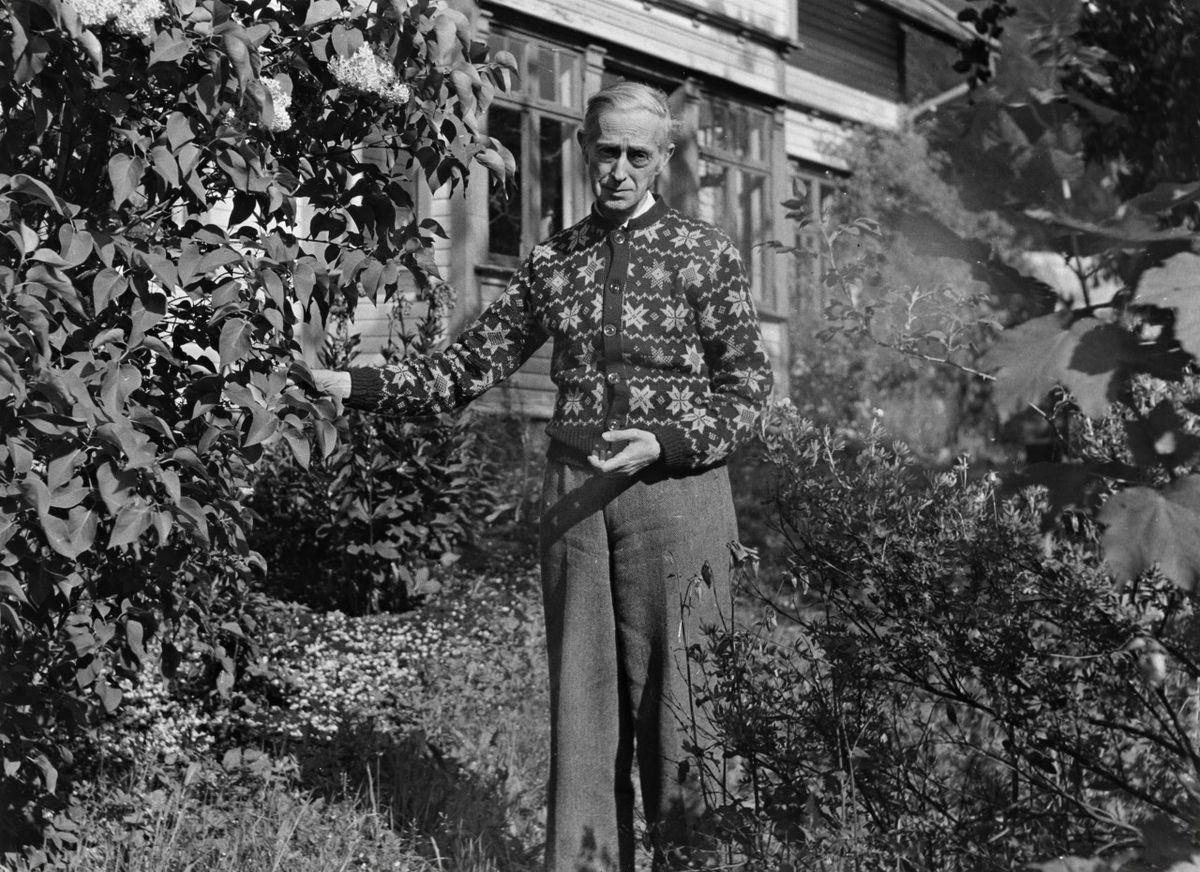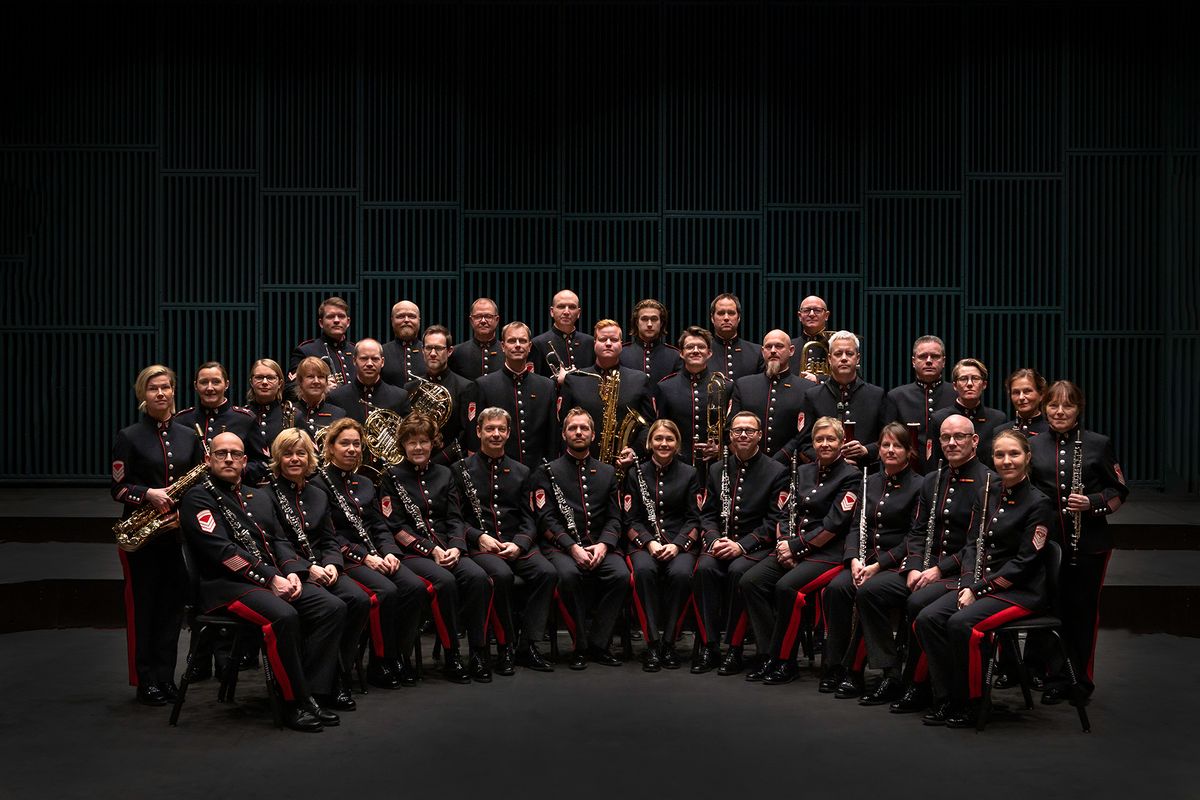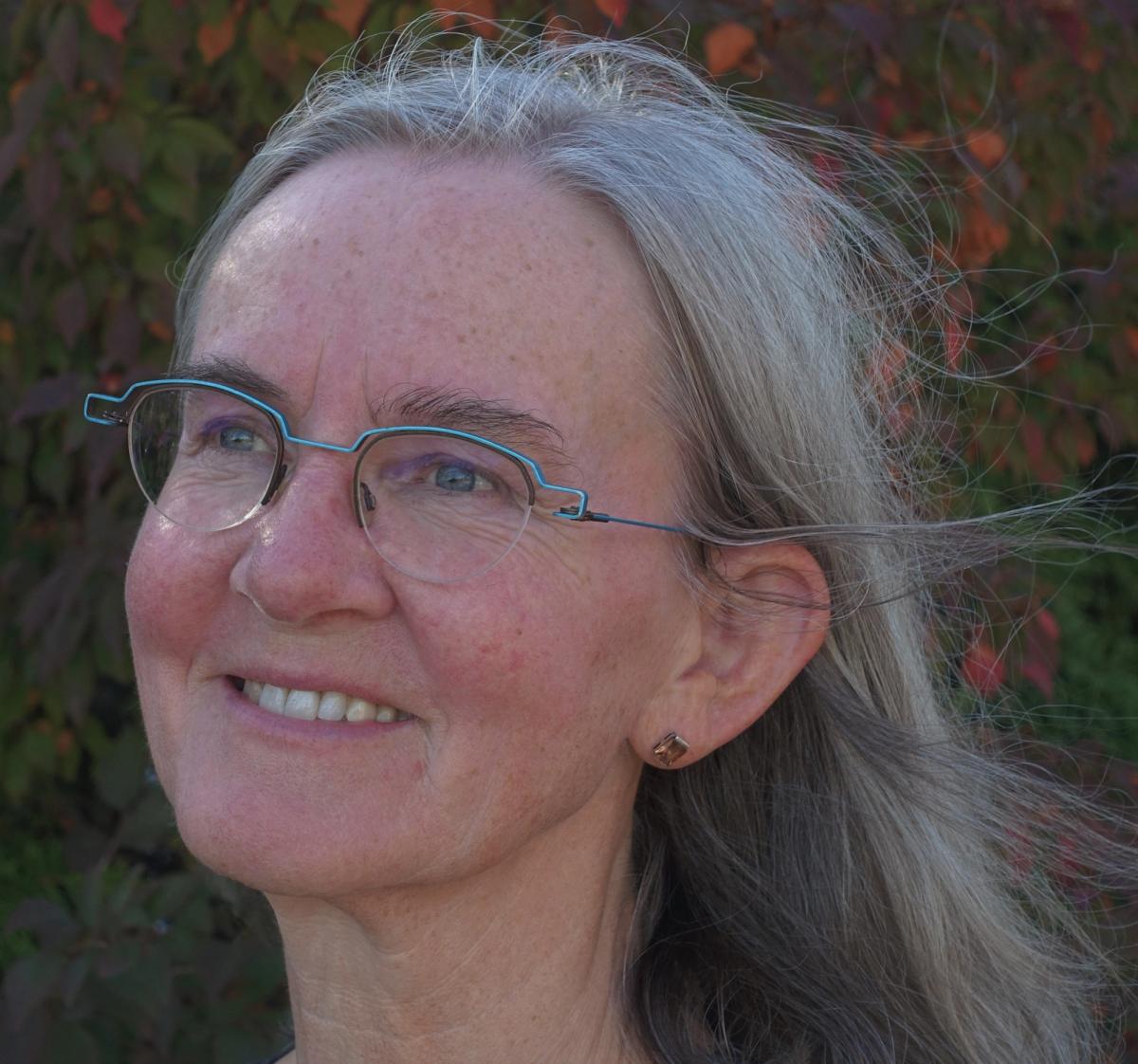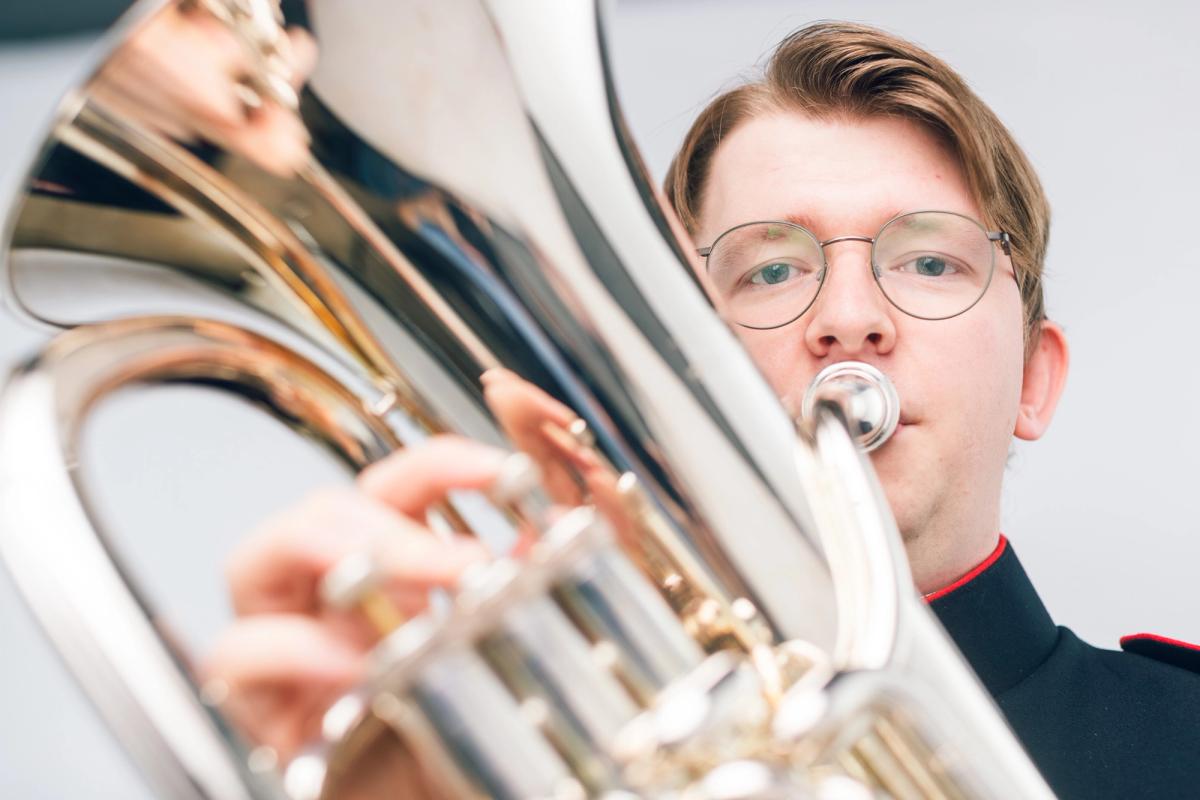Modes and Moves
Forsvarets stabsmusikkorps
Free (with ticket available from August)
Forsvarets stabsmusikkorps (the ‘Norwegian military orchestra’), with conductor Christian Eggen, continue their mission to expand the range of the traditional military brass band. This programme includes three works by Norwegian modernist Fartein Valen as well as other more recent pieces for wind ensembles.
Fartein Valen (1887–1952) was an important voice in the Norwegian music scene in the first half of the 20th century. Alternating periods of solitude amidst the serene west coast nature, with long study periods in Berlin, France and Italy, Valen absorbed the atonal tendencies of his time into an own composition technique known as 'dissonant polyphony‘. This was Baroque music with a twist: instead of pursuing consonant intervals, Valen’s numerous voices harmonize in dissonance, utilizing consonances solely as passing tones.
The three works performed here are Christian Eggen’s wind ensemble arrangements of Valen’s orchestral and piano pieces.
Trass Visa is Norwegian film composer Egil Monn-Iversen's arrangement of a popular song by Alf Prøysen.
Works devoted to the euphonium are rare in classical music, so this is a great opportunity to hear the instrument’s solo capabilities in this jazz tinged concerto by Finland’s Jukka Linkola. Linkola is known as a jazz artist in Finland and plays regularly with his Octet.
The explosive Modes and Moves is written by composer and pianist Kari Beate Tandberg. In her work and research, Tandberg explores how visual impressions and impulses can form the basis of sonorous musical expression. She works with acoustic instruments in both chamber and orchestral settings, and has also composed vocal and electro-acoustic music for ensembles in Japan, Germany and Scandinavia.
Programme
Fartein Valen: Epithalamion opus 19 (1933)
Egil Monn-Iversen/Eirik Sanner: Trass Visa (1988)
Jukka Linkola – Euphonium Concerto no 1 – i: Agitato (1996)
Fartein Valen: Musette og Gavotte opus 24 (1936)
Kari Beate Tandberg: Modes and Moves (2008)
Fartein Valen: Fuge opus 28 (1937)
ultimAdvisor
fjord-fokusE39
●●●●●○
The joy of Fartein Valen
Fartein Valen found Epithalamion’s title in a poem by the English renaissance poet Edmund Spenser. It refers to ancient Greek wedding songs and it’s a rare example of this depressive artist composing joyful, humorous music. I have also heard that he thought of it as a ballet.French dances lie behind the Gavotte and Musette, while Bach – who Valen claimed once visited him in a dream – was the inspiration for the Fugue.
Messingmester
●●●●●○
Kari makes the right moves
Modes and Moves highlights the enormous and varied range of sounds that a wind ensemble has to offer. Modes suggests musical moods, universes and timbres. Moves refers to movement articulated in different ways. Constant discharges and outbursts are followed by musical reflexes and reverberations. Nice to see the ensemble stretched to their limits with this one.

Fartein Valen I Photo: farteinvalen.no

Forsvarets stabsmusikkorps I Photo: Forsvarets stabsmusikkorps

Kari Beate Tandberg I Photo: Bodil Maroni Jensen

Forsvarets stabsmusikkorps I Photo: Forsvarets stabsmusikkorps
Performers
- Forsvarets stabsmusikkorps
Conductor
- Christian Eggen
Eufonium
- Eirik Sanner
In collaboration with
- Forsvarets stabsmusikkorps









